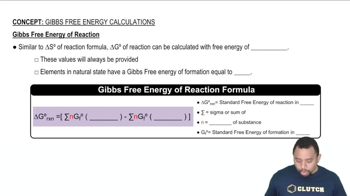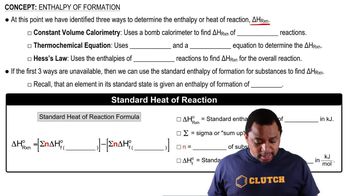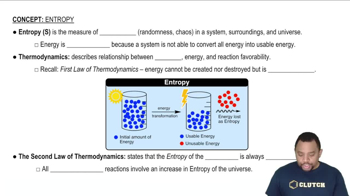Textbook Question
Isooctane, C8H18, is the component of gasoline from which the term octane rating derives (b) The standard molar heat of combustion of isooctane (l) is -5461 kJ/mol. Calculate ΔH°f for isooctane(l)

 Verified step by step guidance
Verified step by step guidance


Isooctane, C8H18, is the component of gasoline from which the term octane rating derives. (a) Write a balanced equation for the combustion of isooctane(l) with O2 to yield CO2(g) and H2O(l)
What does entropy measure?
How is it possible for a reaction to be spontaneous yet endothermic?
Tell whether the free-energy changes, ΔG, for the processes listed in Problem 9.127 are likely to be positive, negative, or zero.